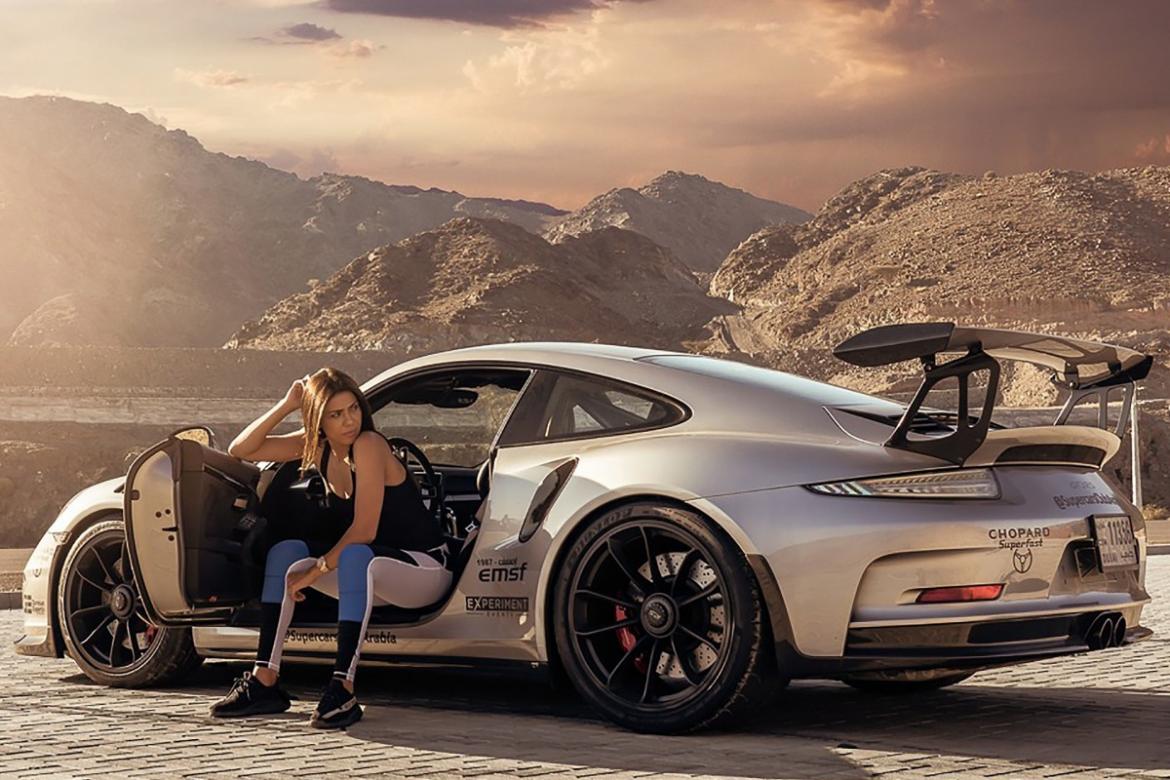One of the most pervading misconceptions about parts of the Middle East is that women are prohibited or discouraged from driving. While Saudi Arabia made international headlines after finally permitting females to get behind the wheel in 2018, women in the UAE have long enjoyed this basic right – and do so with relish.
Exhibit A: Dubai’s Arabian Gazelles, a club exclusively for women with supercars.
The group was founded in 2016 by Algerian-born Hanan Mazouzi Sobati, an avid luxury car enthusiast and a self-made entrepreneur, who has called the emirates home for two decades.
Sobati says she was inspired to start the group because the male racing community considered women “zero and inefficient” at driving luxury sports cars at speed. For Sobati, this was too much to bear.
“It was a build-up of frustrations with the existing motoring landscape. On top of that, the lack of women representation in the world of supercars, the cluelessness of cars manufacturers and distributors when dealing with women, ultimately motivated me to start this club and break the glass ceiling,” she says.
The club’s name refers to a particular species of gazelle native to the region, known to be graceful and fast animals. “Arabian Gazelles clearly fits in with our philosophy as a car club, where women’s boldness speaks volumes,” Sobati says.
Right from the start, Sobati’s family has been supportive of her venture. “My parents and my husband … were the first to recognise my passion before anyone else and understood the need for me to follow and live it fully,” she says.
However, the road ahead wasn’t always an easy one.
“When men first heard about our group, they were completely puzzled. They didn’t understand the nature or the reason for our group. They questioned our motives and the genuineness of our passion,” Sobati says.
“They weren’t ready to let go of all misconceptions and assumptions surrounding women in this male-dominated industry. Men said things like women aren’t into cars, or they don’t know how to drive, or that they simply can’t afford them. All these prejudices need to be wiped out.”
But it wasn’t long before men came to realise that their female counterparts were a group of passionate, bona fide drivers seeking the same emotions and thrills.
“Now, most men welcome this idea and support its growth and reach,” she says. “I love meeting people who have difficulty accepting the presence of such a group. I believe it’s my responsibility to banish whatever misapprehension they harbour in their heart.”
A luxury line
Before she founded the Gazelles, Sobati used to work for De Beers as head of marketing and business development, and secured her gemmology degree while working with the diamond giant. “It allowed me to have 360-degree knowledge of the industry and gave me a strong perspective on how to assess and anticipate clients’ needs,” she says.
Who can join?
The club currently has 120 members of 18 nationalities. All prospective members have to do is own a luxury sports car, such as a Ferrari, Lamborghini, McLaren, Aston Martin, Rolls-Royce, Bentley or Bugatti. “Most members are business owners while others are high-profile executives and housewives with enormous wealth,” says Sobati.
More than motors
Since its inception the club has attracted a lot of media attention which in turn has attracted many brands eager to partner with it. “It’s all because they understand our lifestyle and passion and are willing to support our activities and help us grow,” she says.
In 2018, online fashion outlet Moda Operandi collaborated with the club for a driving event, which saw more than 20 Gazelles wear its collections and kaftans. “This year, we’ve been approached by a major TV network, let’s see how it pans out,” she adds.
As the club’s popularity grows, Sobati says the next stage is to bring the brand to Saudi Arabia.
“It’s something we want to make the most of as women from there have already taken part in events organised by us in the UAE,” she says. “I’ve received requests from overseas to establish the Gazelles club in countries like South Africa and the US. So, the mission is to see it everywhere.”
Note: This story was originally published on SCMP and has been republished on this website.

